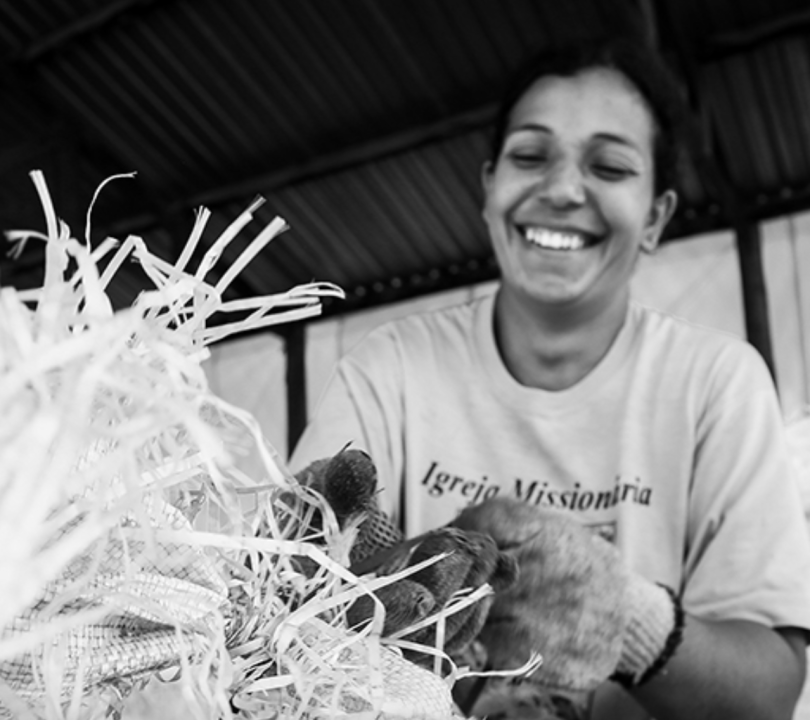What Nature Can Teach Business About Achieving Shared and Sustainable Value
By Mary Draves, Vice President and Chief Sustainability Officer The Dow Chemical Company

Business can learn lessons from nature. In nature, diversity often translates into healthier ecosystems, resilience and improved productivity. Likewise, companies are recognizing that more inclusive business models and collaborations that include diverse actors can drive both economic growth and accelerate impact on addressing our UN Sustainable Development Goals.
What’s behind this realization? As 2019 comes to a close, it’s clear that our current actions to advance sustainability aren’t getting the job done. Issues such as plastic waste, water scarcity, deforestation and species extinction are worsening. The United Nations reports we have only 11 years left to prevent irreversible damage from climate change. As a result, companies of all sizes and across many industries are realizing that conventional ways of addressing sustainability – by focusing inward on increasing the sustainability of our own operations or products – isn’t enough. To accelerate impact, businesses like Dow are engaging diverse stakeholders to help transform the sustainability of the systems of which they are a part. It’s no longer about making do. It’s about changing the structures and processes in society that created problems in the first place.
Rethinking Value
This more inclusive approach requires businesses to shift away from the status quo and adopt news ways of thinking. For starters, it expands the notion of corporate purpose. Recently, Business Roundtable announced a new Statement on the Purpose of a Corporation. Dow is one of the signatories. The revised statement speaks to serving the interests of all stakeholders. It is rooted in the notion that a strong connection with broad elements of society creates value for all stakeholders and contributes to the resilience of a business. In other words, think of sustainability as a forest. Each tree may look like it stands alone as you walk above ground. But below ground, the roots are interconnected – and these connections make trees stronger and more resilient.
It also is requiring businesses to rethink our notions of consumption and where we see value. Take plastic waste, for example. According to the UN, an estimated 8 million tons of plastic waste is dumped into the oceans annually. Studies demonstrate that capturing plastic waste before it reaches the ocean could cut ocean costs by over $2.1 billion. Our industry and society as a whole must do a better job of recapturing the value of plastic waste by scaling investments in collection, waste management, recycling technologies and new end markets. To help, Dow is partnering with local communities, government agencies and associations in Asia, Africa and Latin America to convert waste into a resource, and reshape how communities perceive and engage with waste.
For example:
- In Brazil, we are working with Boomera and Fundación Avina on “Recycling for a Change” to create a training, professional development and strategic support model that is enabling waste picker cooperatives to become more sustainable and profitable. The goal is to enhance the efficiency of the cooperatives, improve management and generate more income for workers, and to take what is learned to eventually develop a working model that can be scaled and implemented across Latin America.
- In Indonesia, we are working with Project MASARO on a pilot project that is seeking to introduce a closed loop waste management system at a boarding school in the village of Babakan. Through training workshops, students and teachers are learning to turn food waste into valuable end-products like fertilizer, and hard-to-recycle plastics into fuel using pyrolysis. So far, the project has converted more than 8,800 pounds of waste into more than 18,000 liters of fertilizer and 90 liters of liquid fuel. In the process, the team has trained more than 3,000 students and teachers in proper waste management and plans to train another 10,000 community members before the end of the year.
- To help improve infrastructure and find new uses for plastic waste, we also are working with partners around the world to make polymer-modified asphalt roads with recycled plastic. The results are roads that are cheaper, more sustainable and more durable than conventional highways. To date, we’ve built nearly 100 kilometers of asphalt roads containing recycled plastic across Asia, Europe, North America and Latin America, diverting 200 metric tons of plastic from landfill. New projects are in the works in Vietnam, Mexico, Brazil and the Philippines.
Collaborating for Change
We understand there is no one-size-fits-all solution to plastic waste. Yet by joining forces with a diverse group of actors who are making inroads in tackling poor waste management, as well as engaging local communities, government agencies and associations, we hope to change the conversation around plastics and their value to society. We hope to find innovative ways to create scalable zero-waste models that can be replicated globally. And we hope to help turn a global problem into a sustainable economic opportunity – by creating jobs and a positive ripple effect that improves lives in all sorts of ways.
We’re all familiar with ecosystems in the natural world. In nature, organisms influence each other and their environment. They share and create resources. They co-evolve and adapt. For business, adopting ecosystems thinking to sustainability provides a new frame and mindset. It enables and encourages participation by a diverse range of organizations that, together, can create, scale and serve markets beyond the capabilities of any single organization. It helps encourage innovation in ways that a more siloed, “top-down” approach cannot. And it connects us in ways that puts a focus on our shared interests and shared value.
Clearly, today’s problems won’t be solved by working alone. But by working together, we all benefit. We all move forward.

